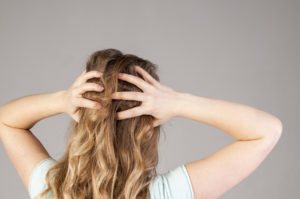
The symptoms of Meniere’s disease range from a full feeling in the ear, progressive or rolling loss of hearing, tinnitus (ringing or buzzing in the ear) and vertigo. These uncomfortable symptoms often happen in waves, randomly, and without warning. Unfortunately, this disease is difficult to pinpoint, and has no way to truly conclude a diagnosis.
Vertigo, the experience of your body spinning or the room spinning while in fact all things are intact and not moving at all, often coincides with Meniere’s disease. The onset is sudden and can sometimes result in the person who is experiencing it to fall to the ground due to losing his or her balance. This is certainly not a very convenient side effect.
Table of Contents
Why Does Meniere’s Disease Happen?
Like many conditions like it, the causes of Meniere’s disease remain unclear. One agreed-upon conclusion is that there is build up of unnecessary liquid in the ear. Here are two possible reasons for this:
- An excess production of fluid
- Inadequate absorption of fluid
There are a number of factors that may be involved, which include the following:
- Allergies
- Autoimmune disorders
- Family history of Meniere’s disease
- Trauma to the head or ear
Drugs are often prescribed to combat vertigo symptoms. These relief care are designed specifically to interact with the neurotransmitters in the brain, enhancing or blocking certain effects. Another from of relief care that can have positive results is decreasing the amount of sodium in a patient’s diet to eliminate unnecessary stored fluid in the body. This can gave a positive impact on the feeling of fullness in the inner ear caused by extra fluid. While these methods can be helpful, they do not get to the root cause of Meniere’s disease for these individuals. The relief they provide is short lived, and relief care stays continuous.
To learn more about the connection between head and neck injuries and vertigo download our complimentary e-book by clicking the image below.
Head Injury, Vertigo, and Meniere’s Disease
An encouraging piece of news is that research has found an association of these conditions to a specific type of injury. A number of patients suffering with Meniere’s also experienced a head injury at some point in their medical history. No matter the seriousness of the type of injury, it has provided evidence that this could be the reason behind many people’s suffering.
A study completed on 60 chronically affected vertigo patients, found that 56 had a neck trauma or head injury of some kind, prior to the onset of the disease. The range of circumstances surrounding their injuries were anywhere from slipping due to unsafe footing, sports injuries (for example, bike riding, horse riding, skiing), to car accidents. What researchers also found was that there was no common thread in timing for when these accidents occurred. Some head injuries were as long as 27 years in the past, and others as short as 1 year prior to having symptoms. This means that making the correlation between an injury and the later developing symptoms could prove very difficult due to the amount of time that has passed for the patient.
The reason head and neck injuries are related to vertigo or Meniere’s disease is the involvement of the central nervous system in these areas of the body. In fact, the inner workings of the neck are intended to protect the nerves that travel up to the brain where messages are sent regarding the many body parts. In order to keep the body working properly, it is vital that these messages are undisturbed in their travel. Of these body parts, your ears, eyes and limbs are all affected, each one of them being key components of your ability to balance and coordinate your movement. They are also responsible for your sense of spatial awareness, so if they were to have a dysfunction, vertigo or other Meniere’s symptoms could easily come into play.
One of the main purposes of the spine is to shelter the tender tissues of the central nervous system. What is often overlooked is that any obstruction to these nerves sending signals to the brain, such as a spinal misalignment caused by an injury, can create other health conditions.
Upper Cervical Chiropractic Care Could Be the Answer
Of the 60 chronic vertigo patients from the research study mentioned above, all of them received upper cervical chiropractic relief care to eliminate their Meniere’s or vertigo symptoms. The unique focus of upper cervical chiropractic care gives specific attention to the uppermost two vertebrae of the spine, the atlas and the axis. These two work together, allowing your head the free movement you enjoy daily, as well as being a safehouse for your body’s brainstem. Within this junction is your vestibular system, the body’s main neurological system that assists with balance. The proper alignment of these two vertebrae is imperative for healthy function of your vestibular system. Interrupted bodily communication caused by a misaligned spine often results in a number of symptoms, including vertigo.
One of the incredible benefits of upper cervical chiropractic care is that it works with the body’s natural ability to heal itself. The gentle adjustments made to the axis and atlas remain in place long enough for your damaged tissues and muscles to begin the healing process. This means the relief that comes from returning normal communication for the body’s signals will remain in effect because these signals will no longer be impeded. The most important outcome for patients is that they experience lasting results, and can return to a quality life without the inconveniences of their Meniere’s symptoms.
References:
https://vertebralsubluxation.sharepoint.com/Pages/2006_1174_Vertigo.aspx
To schedule a consultation with Upper Cervical Chiropractic San Diego, call 858-434-5926 or just click the button below.
If you are outside of the local area you can find an Upper Cervical Doctor near you at www.uppercervicalawareness.com.







